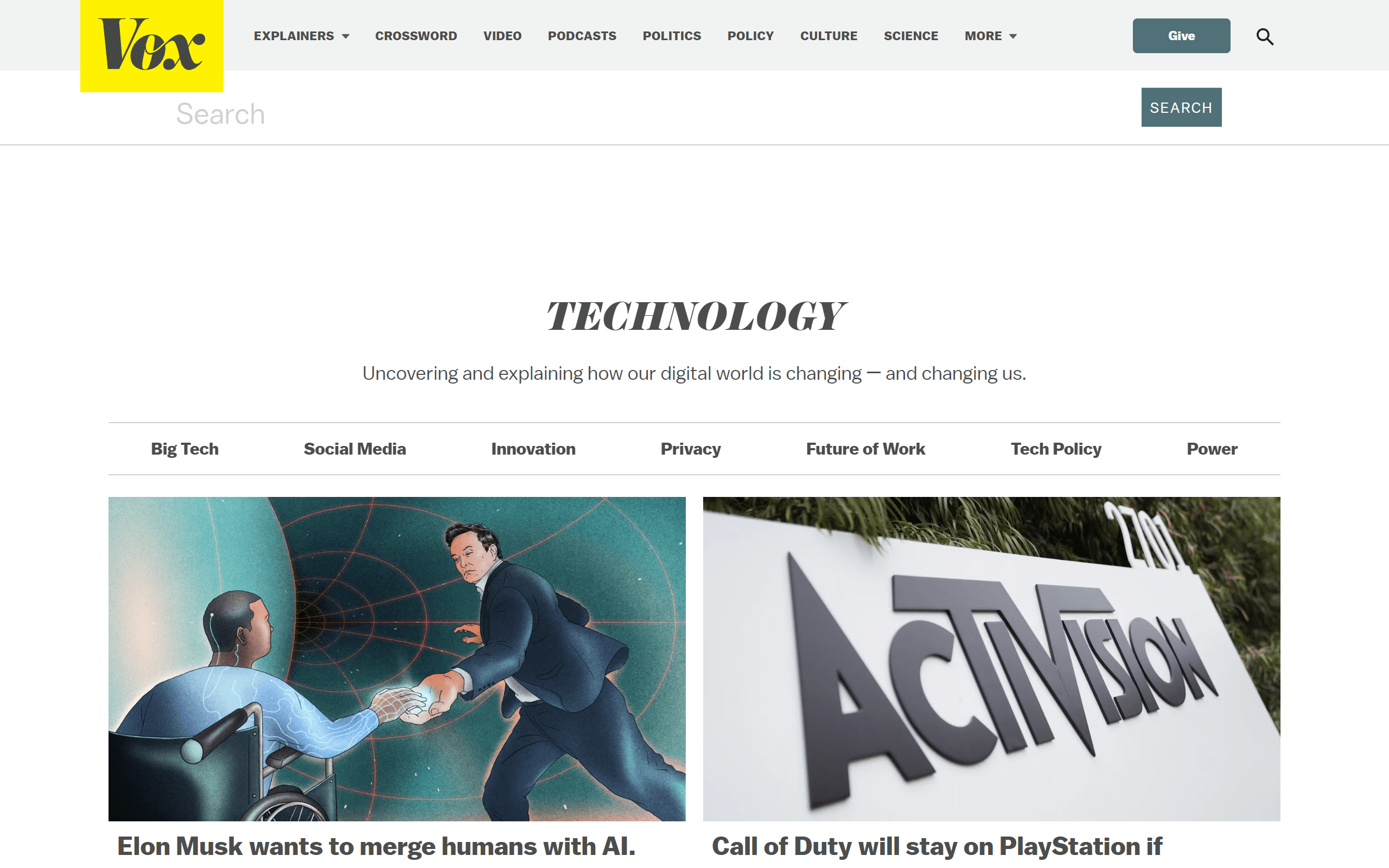Discover the Best tech blog for the Latest Trends and Technologies in Technology
Discover the Best tech blog for the Latest Trends and Technologies in Technology
Blog Article
Just How Blockchain Innovation Is Revolutionizing Information Security
Blockchain modern technology is basically changing the landscape of information safety by presenting a decentralized framework that promises enhanced transparency and strength. Unlike standard systems, which count on centralized information databases, blockchain distributes data across a network, lessening susceptabilities and single points of failure. Making use of innovative cryptographic strategies ensures that data remains tamper-proof, fostering depend on amongst customers and stakeholders. As markets quickly adjust to this technology, inquiries emerge regarding its more comprehensive influence and possible obstacles. What effects does this change hold for future data security techniques and governing structures? The responses may amaze you (Best tech blog).
The Essentials of Blockchain
Blockchain modern technology, a revolutionary concept in digital information management, fundamentally transforms exactly how info is stored and protected. At its core, a blockchain is a dispersed ledger that records transactions across a network of computers, making certain transparency and immutability. The modern technology operates a chain of blocks, each including a checklist of deals. Once a block is filled up, it is time-stamped and connected to the previous block, developing a chronological chain.
Key to comprehending blockchain is the hashing procedure, which encrypts purchase data into an one-of-a-kind alphanumeric code. This cryptographic function makes sure that any alteration in the deal data causes an entirely different hash, consequently protecting against tampering. The agreement system, an additional important part, confirms and verifies new purchases through a network of nodes, thereby getting rid of the demand for a central authority.
In addition, blockchain's append-only structure guarantees that information, as soon as included, can not be deleted or modified. This particular guarantees a verifiable and permanent document of purchases, fostering depend on amongst participants. Because of this, blockchain offers a durable framework for data honesty, using industries a trusted approach for monitoring and handling electronic info in a safe and secure, transparent manner.
Decentralization and Safety And Security
Decentralization, a core principle of blockchain modern technology, substantially enhances data safety and security by dispersing control across a network instead than relying on a singular, central entity. By spreading data across countless nodes, blockchain makes sure that also if one node is compromised, the entire network continues to be safe and secure.

Furthermore, decentralization empowers customers with better control over their data. Each individual in the network has accessibility to the entire blockchain, allowing them to verify and examine transactions separately. This transparency cultivates trust amongst users, as they do not need to rely on a main authority to make certain information stability. On the whole, decentralization is important in boosting information safety and security in blockchain networks.

Cryptographic Techniques
At the heart of blockchain modern technology, cryptographic techniques play an essential role in safeguarding information, making certain both discretion and honesty. Cryptography in blockchain uses a combination of uneven and symmetrical formulas to encrypt data, making it easily accessible just to authorized parties.
Hash functions are one more crucial component, transforming input information into a fixed-size string of personalities, properly creating a special electronic fingerprint for each and every block. This makes sure that any type of attempt to alter the data will certainly lead to an entirely different hash, hence keeping the immutability of the blockchain. Electronic trademarks confirm the credibility and honesty of deals, giving a layer of non-repudiation.
The decentralized nature of blockchain, combined with durable cryptographic strategies, eliminates the requirement for middlemans, decreasing prospective susceptabilities. As blockchain innovation advances, advancements in cryptography such as zero-knowledge proofs and homomorphic security proceed to boost safety steps, even more fortifying information security in this revolutionary electronic ledger system.
Usage Cases Across Industries

In the healthcare industry, blockchain makes sure the safe storage space and sharing of patient documents, advertising interoperability while securing sensitive data from unapproved more accessibility. This technology equips individuals with control over their case history and assists in seamless sychronisation amongst doctor.
Supply chain monitoring benefits significantly from blockchain's unalterable journal, which guarantees traceability and credibility of products from beginning to customer. By boosting transparency, blockchain assists minimize problems such as counterfeiting and unethical sourcing.
Additionally, blockchain's decentralized nature is reshaping the energy industry by enabling peer-to-peer energy trading, where consumers can purchase and market excess renewable resource directly. This fosters a much more reliable and sustainable energy ecological community.
In the realm of intellectual building, blockchain gives a tamper-proof platform for makers to sign up and protect their jobs, making sure rightful attribution and fair compensation. These varied usage situations highlight blockchain's function as a pivotal force in redefining information safety and security across markets.
Future of Information Defense
As we seek to the future of information protection, blockchain modern technology is poised to play a crucial role in protecting digital information. With its decentralized and immutable attributes, blockchain uses a robust structure for securing sensitive information against unapproved accessibility and cyber dangers. This technology makes sure that see this as soon as data is tape-recorded, it is almost difficult to alter without detection, therefore giving a significant advantage over conventional data storage techniques.
The combination of blockchain with various other innovative technologies, such as synthetic intelligence and the Net of Points (IoT), is expected to enhance data protection techniques additionally. By leveraging wise agreements, companies can automate and apply safety and security procedures, minimizing human error and boosting effectiveness. Furthermore, blockchain's capability to supply clear and traceable transactions will strengthen trust fund and accountability in data management techniques.
As governing landscapes progress, blockchain's compliance-friendly nature will certainly end up being increasingly relevant. It can help companies fulfill rigid data protection regulations, such as the General Information Security Policy (GDPR) and the California Consumer Privacy Act (CCPA), by giving proven records of information processing tasks. Eventually, blockchain's distinct characteristics position it as a transformative device in the continuous mission to secure the electronic globe against ever-evolving cyber hazards.
Final Thought
Blockchain technology represents a standard shift in information safety by leveraging decentralization and cryptographic techniques to improve openness, trust, and information stability. As cyber hazards develop, blockchain emerges as an essential tool for robust information defense across various markets.
Blockchain modern technology is essentially altering the landscape of data protection by presenting a decentralized structure that promises enhanced openness and resilience. Unlike conventional systems, which count on centralized data databases, blockchain disperses information across a network, lessening vulnerabilities and single points of failing.Decentralization, a core principle of blockchain technology, substantially boosts information security by distributing control across a network rather than relying on a singular, central entity.At the heart of click this link blockchain modern technology, cryptographic techniques play a critical function in securing information, making sure both discretion and honesty.Blockchain modern technology stands for a standard change in information safety by leveraging decentralization and cryptographic techniques to enhance transparency, count on, and data stability.
Report this page